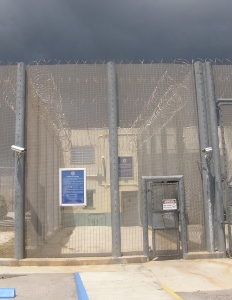Archive for September 20th, 2012

Coconuts celebrated at local festival
 (CNS): The Cayman Islands Agricultural Society will be hosting Coconut Festival on Saturday, 29 September in conjunction with Market at the Grounds. Organisers described the event as a traditional Caymanian Day, focusing on all things coconut. There will be sampling of traditional Cayman coconut dinners such as conch stew, beans with pie, plus coconut ice-cream, coconut candy, drops, tarts and of course, coconut water. Local chefs taking part in this event include Alvin McLaughlin, Eulene McLaughlin, Ivy Thomas and Ms Zelma Lee Ebanks.
(CNS): The Cayman Islands Agricultural Society will be hosting Coconut Festival on Saturday, 29 September in conjunction with Market at the Grounds. Organisers described the event as a traditional Caymanian Day, focusing on all things coconut. There will be sampling of traditional Cayman coconut dinners such as conch stew, beans with pie, plus coconut ice-cream, coconut candy, drops, tarts and of course, coconut water. Local chefs taking part in this event include Alvin McLaughlin, Eulene McLaughlin, Ivy Thomas and Ms Zelma Lee Ebanks.
The Coconut Festival is free to the public and the agricultural society will be joined by the Health Services Authority who will be on hand to provide information of the health benefits of coconut.
“Most people, especially older folks, are aware of the many benefits of coconuts, especially the water, which is great for replacing electrolytes,” said Juliana O'Connor-Connolly, the minister responsible for agriculture. “Coconut oil is also a favourite, for good reason. It adds a distinct flavour to cooking and is useful for beauty treatments including hair and skin care, as well as to fight infection.
"Young people need to re-acquainted with some of our traditional foods and events such as Coconut Festival will brings these traditions back to the forefront,” she added.
Coconut Festival is free to the public and is scheduled for 29 September from 9:00 a.m. to 12:00 noon, with fun and food for the entire family to enjoy. The information commisoiner’s office will also be at the even marking the end of Right to Know Week.

WB rapist gets 12 years
(CNS): A 46-year-old West Bay man has been sentenced to 12 years imprisonment for the rape of a 14 year old girl which took place in December 2010. Tyrone Ebanks was found guilty of the offence by acting Justice Michael Mettyear on Thursday following a judge alone trial last week. Ebanks had dragged the teenage victim, who was a virgin at the time of the offence, from her bicycle as she drove past his home in West Bay. He pulled her into his house, where, despite her best effort s to fight him off and her cries for him to stop, he raped her in his bedroom. The victim knew her attacker and when she made her escape she immediately reported the rape.
After the attack Ebanks had threatened the young girl with a knife and told her not to tell anyone. However, the judge noted the girl had bravely disregarded his threats, telling her family and going to the police at the earliest opportunity.
Although Ebanks denied the offence, saying that the girl had come into his house while passing on her bike to use the bathroom and there had never been sexual contact, DNA recovered from the rape kit taken from the teen victim was a match for Ebanks. The judge said there was overwhelming evidence that sex had taken place and the young victim had described her ordeal in a clear and measured way.
The court heard how the young victim, who is still only sixteen, had been impacted by her ordeal. In a statement she said she continued to have nightmares and believed her life had been widely affected by the attack.
The judge said that the crime of rape was one of the worst things that could happen to a woman and was even worse for such a young girl. “The sympathy of the court goes out to her and we can only hope that the conclusion of this trial will bring closure for her and allow her to start the healing process,” Justice Mettyear said before he handed down the twelve year sentence to Ebanks, which was at the top end of the chief justice’s guidelines.
The judge pointed to a number of aggravating factors in the case, including the use of the knife to threaten the girl after the attack. Ebanks also had a criminal record and had been on early release from a prison sentence for armed robbery at the time he committed the offence. Justice Mettyear noted that Ebanks, who had denied the crime and who had accused the victim of lying when it was he who had lied all along, had shown no remorse.
Despite her attempts to get away and her pleas for him to stop, Ebanks had still raped his young victim, the judge said.
Throughout the verdict and the judge’s sentencing Ebanks appeared to remain calm as he stood in the dock but after the sentence was handed down and he was taken into custody, he shouted angrily at the judge and the prosecutor as he insisted he had been set up.

Almost half government students getfive high passes
 (CNS): Exam results at the government high schools reached a new national high this year when close to half of all Year 12 students attained 5 or more Level 2 passes. Chief Education Officer Shirley Wahler said that 49% of students leaving the government system in 2012 reached five O’ Level equivalent atA*-C at GCSE/IGCSE or I-III at CXC, compared with 45% last year and 27% just 5 years ago. Students on Cayman Brac once again significantly outperformed their peers on Grand Cayman with 70% of them achieving five Level 2 passes. The education minister admitted there was still some way to go for the national average but welcomed the continued improvement.
(CNS): Exam results at the government high schools reached a new national high this year when close to half of all Year 12 students attained 5 or more Level 2 passes. Chief Education Officer Shirley Wahler said that 49% of students leaving the government system in 2012 reached five O’ Level equivalent atA*-C at GCSE/IGCSE or I-III at CXC, compared with 45% last year and 27% just 5 years ago. Students on Cayman Brac once again significantly outperformed their peers on Grand Cayman with 70% of them achieving five Level 2 passes. The education minister admitted there was still some way to go for the national average but welcomed the continued improvement.
Across Cayman’s government schools 168 graduating students got five high passes compared to 88 in 2007.
“It’s important to look back to where we have come from to appreciate the value of what has been achieved over the last few years,” Wahler said. “It is exciting to see more and more of our students realising their potential and achieving high standards, gaining the sorts of qualifications that will open the door to scholarships and access to higher education.”
Education Minister Rolston Anglin welcomed the results but said students were capable of even more.
“We are not yet where we want to be, but we are certainly moving in the right direction,” he said. “Our children are capable of the highest levels of success; we have to really believe it, help them and their families believe it, and then provide the right policies, systems and support to help them soar.”
Anglin said there had been many interventions which have had a positive impact.
“We have conducted national campaigns on valuing education and implemented policies which tackled issues such as the large number of students who were only being entered for just a few examinations, or for lower level examinations,” he explained.
“Adding academic criteria for graduation has sent a strong message to students and parents that achievement matters. The Further Education Centre (CIFEC) and the opportunities it provides for re-sits and new examinations has also made a tremendous difference. In addition, CIFEC continues to offer a greater challenge for our most academically able students, who have entered UCCI or A level programmes one year early and have excelled.”
The system changes have been complemented, the minister said, by lots of hard work at school level.
“We all owe a great debt of gratitude to the principals of our high schools and other senior managers and teachers in our system, who have put in the time and effort to give our students every opportunity to succeed,” he added.

Information abuse could land controllers in jail
 (CNS): The working group that is drafting a local data protection law has recommended that those convicted of abusing it could face a jail term of as much as five years as well as financial penalties of as much as $250,000. Deputy Information Commissioner Jan Liebaers, who discussed the implementation of the new law with CNS recently, explained that there had been considerable discussion amongst the group about the need for a significant deterrent. He said information controllers could be fined $100,000 for refusing or failing to comply with an order from the information commissioner but could face as much as a quarter of a million dollar penalty for a deliberate contravention of the law.
(CNS): The working group that is drafting a local data protection law has recommended that those convicted of abusing it could face a jail term of as much as five years as well as financial penalties of as much as $250,000. Deputy Information Commissioner Jan Liebaers, who discussed the implementation of the new law with CNS recently, explained that there had been considerable discussion amongst the group about the need for a significant deterrent. He said information controllers could be fined $100,000 for refusing or failing to comply with an order from the information commissioner but could face as much as a quarter of a million dollar penalty for a deliberate contravention of the law.
Staring with fines of $5,000 and maximum terms of five years, Liebaers said the group was seeking meaningful enforcement for the legislation once it was passed. He added that the comparable maximum monetary penalty in the United Kingdom is £500,000, intended as a deterrent for serious wrongdoers.
In Cayman, the group has proposed a top penalty of up to $250,000 for a serious deliberate contravention of the law by a data controller that is “likely to cause substantial damage or substantial distress”, and where the data controller was likely to know or ought to have known that this would be the case.
Liebaers emphasized, however, that the introduction of the law is not just about policing personal information and enforcement. He hoped that would have only a small role in the way the new law would work as the goalwas to manage personal data responsibly and appropriately and to prevent abuse in the first instance.
The Information Commissioner’s Office will be responsible for the law and, once passed, existing sections of the FOI law that deal with the protection of personal information will be transferred.
Speaking at a press briefing this week regarding Right to Know Day, Commissioner Jennifer Dilbert assured the public that the implementation of a Data Protection Law would not undermine the public’s right to information from government. She said this law was about protecting sensitive personal data held by all entities in both the public and private arenas and not public information held by government.

Captured stingrays reveal need for protective law
 (CNS): Following the discovery by a local vet that one of the captive dolphin facilities on Grand Cayman had taken Stingrays that had been tagged from the Sandbar in the North Sound, the Department of Environment has called for specific legislation to protect these marine creatures. The DoE discovered during an investigation that four of the ten stingrays held captive at Dolphin Discovery in West Bay could have been taken from the wildlife interactive zone, as reported on Cayman27 this week. Although the owners of the facility have agreed to return the tagged rays, the DoE director has called for legislation to help her department address the problem of people taking rays from the sea.
(CNS): Following the discovery by a local vet that one of the captive dolphin facilities on Grand Cayman had taken Stingrays that had been tagged from the Sandbar in the North Sound, the Department of Environment has called for specific legislation to protect these marine creatures. The DoE discovered during an investigation that four of the ten stingrays held captive at Dolphin Discovery in West Bay could have been taken from the wildlife interactive zone, as reported on Cayman27 this week. Although the owners of the facility have agreed to return the tagged rays, the DoE director has called for legislation to help her department address the problem of people taking rays from the sea.
Gina Ebanks-Petrie said that amending the marine conservation law or passing the national conservation law and adding the stingrays as a protected species would prevent people from taking these marine creatures, which should not be in captivity, from anywhere in Cayman waters.
The only protection the iconic creatures have in Cayman is in the wildlife interaction zone at the Sandbar and Stingray city. She said it was not possible to prove that the four tagged rays were taken from the protected zone because the rays move freely in and out of the area. As a result, the dolphin catchers could have taken the rays from elsewhere. However, because of the tags, she said, they were clearly stingrays that populated the well-known natural tourist attraction.
Finding the rays at Dolphin Discovery further highlights the lack of real protection Cayman has for many of the unique creatures that call the islands home.
See Cayman 27 report here.

Government failures continue
 (CNS): Looking back at a special report from the Office of the Auditor General (OAG) conducted in 2005 demonstrates that government has learned few, if any, lessons regarding procurement and the management of public money. Commenting on the report conducted by his predecessor into the original affordable housing initiative, which threw up numerous anomalies and questions, Alastair Swarbrick has said the report and the two follow-up forensic audits found the same problems that his office is still finding in government in their contemporary work some seven years after these were conducted.
(CNS): Looking back at a special report from the Office of the Auditor General (OAG) conducted in 2005 demonstrates that government has learned few, if any, lessons regarding procurement and the management of public money. Commenting on the report conducted by his predecessor into the original affordable housing initiative, which threw up numerous anomalies and questions, Alastair Swarbrick has said the report and the two follow-up forensic audits found the same problems that his office is still finding in government in their contemporary work some seven years after these were conducted.
Speaking at the Public Accounts Committee meeting in the Legislative Assembly on Wednesday, the current auditor general said the whole point of the OAG’s work was not only to hold people accountable in government but to provide an opportunity to learn lessons. He said there was little value in commenting in detail on his predecessor’s findings in the specific case of the housing project because of the time that had passed, but the continued repetition of the same problems in procurement now was of significant concern.
“Most of the issues and concerns that are raised in these three reports bear a striking resemblance to issues that my office and others have identified over the last few years in respect of procurement, project management and governance, including issues recently identified at the National Housing Development Trust during 2011,” Swarbrick told the committee.
“The true value of effective audit and scrutiny, apart from ensuring that public officials and entities are held accountable for their actions, is to ensure that government and its agencies learn and continue to improve so that the citizens of the Cayman Islands receive better services, outcomes and value for the funds that they entrust to government. It is of concern to me that that these three reports highlight issues that continue to be significant today, therefore casting a shadow over effectiveness of accountability of government to their stakeholders,” he added.
Swarbrick explained that the special audit conducted by his predecessor, Dan Duguay, was the first of three relating to the Affordable Housing Initiative and National Housing and Community Trust. The second two were ordered by the governor as a result of the findings of the first, which triggered a police investigation.
The two reports for the governor were placed in the public domain but the first has remained under wraps because it was conducted under the old PAC rules, when reports could not be released until the committee had examined witnesses and concluded its own report. As a result the report is still secret.
However, PAC finally got down to examining the report Wednesday and the former community affairs minister, Dr Frank McField, was called before the committee and given an opportunity to put his side of the story.
However, none of the PAC members questioned McField, the former UDP minister and outspoken character, who, apparently recovered from his recent unexplained gunshot wound, gave a long opening explanation. He denied any personal financial gain, which he said was implied by the report, but admitted that protocol was not followed and, given the circumstances, corners were cut, but he criticised the way the information was released.
“My reputation was stained by the way in which the previous auditor general handled the publication of his findings,” McField told the committee.
As he spoke about his motivations for the project, which was to help those in need get affordable homes, he said that paperwork was not always there and protocol was not followed but that was a widespread issue in Cayman government as it has not yet matured to the bureaucratic standards now required.
McField also defended the quality of the homes that were built, noting that government had been able to raise a loan from the bank and get the homes insured, something that would not have happened had the homes been as substandard as people now claim.
Nevertheless, he said that information given to the auditor general during his investigation, which took place after he was a minister, was not accurate. He said that people say different things when they do not have to face the person they are talking about as he warned the OAG to be wary of what people say.
“You have to be careful what people tell you when they turn their back,” he said. McField stated that the cash that was given to Staunch, the second contractor hired to do the repairs after Hurricane Ivan, was to buy materials in Mexico. “When I tell people I am poor now they don’t believe me as they say I got the money,” he told the committee and denied any personal gain.
Although the first report has not yet been released publicly, an FOI request made by CNS in 2009 for an affidavit Duguay had given to the police revealed that the then auditor “uncovered substantial reasons to suspect bribery and corruption" between McField and the contractors.
The partially redacted document relating to the first forensic audit report which triggered a police investigation revealed suspicions over the personal interventions by McField in his role as minister to ensure that Staunch was awarded the contract to rebuild the homes destroyed by Hurricane Ivan, and various other irregularities that suggested kickbacks and misappropriation of public money.
Duguay found that Staunch was awarded contracts in the absence of proper tendering, payments were authorized against the advice of senior trust officials, dates on letters were altered to give Staunch additional contracts after the election, large amounts of cash were withdrawn from bank accounts and other suspicious amounts were paid by Staunch to Capital Trucking, a firm owned by McField.
Related article:
Papers reveal AG's affordable housing concerns
See released affidavit below.

IMs push on FOI limit
 (CNS): Although many public authorities are publishing more information proactively and releasing more information, the Information Commissioner’s Office (ICO) has identified a worrying trend in its latest statistical analysis of how the law is working. While the proportion of requests granted in full or in part has increased since the law came into force in 2009, the time authorities take to do it is getting longer. The median average time in the first year was 21 days, But instead of decreasing, information managers are now taking an average of 30 days, which is the limit that the law allows.
(CNS): Although many public authorities are publishing more information proactively and releasing more information, the Information Commissioner’s Office (ICO) has identified a worrying trend in its latest statistical analysis of how the law is working. While the proportion of requests granted in full or in part has increased since the law came into force in 2009, the time authorities take to do it is getting longer. The median average time in the first year was 21 days, But instead of decreasing, information managers are now taking an average of 30 days, which is the limit that the law allows.
Deputy Information Commissioner Jan Liebaers said on Tuesday that since the implementation of the law, some 2318 requests had been logged into the government system; however, the statistics were not accurate as they were aware that some requests were never logged, so the figure was likely to be higher. While more information was now being released by information managers, the bad news was they are taking longer.
“The thirty day rule is not a target; it is the maximum time allowed,” Liebaers stated at a press briefing to announce the launch of this year’s Right to Know week activities. He said that it was an unexpected trend, especially against the backdrop of more information being released. The statistics revealed that government is well over the legal time line when the mean average rather than the median is calculated, pushing the stats up to almost 60 days. It is apparent, therefore, that while some authorities are releasing information within the parameters of the law, others are taking months to do so.
Jennifer Dilbert, the information commissioner, pointed to the importance of the deadlines, which to the applicant waiting on the request already seemed a long period.
Despite a number of issues that stillneed to be addressed, overall people were using the law and FOI is making a difference, Dilbert said. “One of objectives of the law is to have a better informed public and we feel that’s happening and we are pleased with progress of law,” she said, noting that the goal was to make government more transparent and accountable and that was working.
Nevertheless, the commissioner said she still wanted to see more proactive disclosure of information and pointed to the need for IMs to demonstrate more clearly to applicants why information was being withheld. She said it is not enough for the public authorities to cite an exemption in the law without explaining to applicants the reason why it applies in the given case. Dilbert said that at the appeal and hearings stage her office was seeing too broad an approach, with authorities citing lots of exemptions without really understanding if they actually apply.
Right to Know day takes place on Friday 28 September but the office will be taking part in a number of events throughout the week to encourage more people to use the law under the theme, ‘It’s yours just ask’.
For more information go to www.infocomm.ky
Adults and juveniles still mixed in local jails
 (CNS): Despite the obvious human rights implications, older men are still being house with young offenders at Eagle House and teenagers are still being housed inside the adult prison at Northward. Although the originally prescribed age limit on inmates at Eagle House, the centre deigned for the country’s youngest offenders, an FOI request by a CNS reader has revealed it is still holding 25 men over the age of 22, fifteen of which are aged over 30. Meanwhile, there are twenty young men aged 21 or under being incarcerated in HMP Northward, the men’s adult prison, two of whom are boys under the age of 17.
(CNS): Despite the obvious human rights implications, older men are still being house with young offenders at Eagle House and teenagers are still being housed inside the adult prison at Northward. Although the originally prescribed age limit on inmates at Eagle House, the centre deigned for the country’s youngest offenders, an FOI request by a CNS reader has revealed it is still holding 25 men over the age of 22, fifteen of which are aged over 30. Meanwhile, there are twenty young men aged 21 or under being incarcerated in HMP Northward, the men’s adult prison, two of whom are boys under the age of 17.
The issue of housing young offenders alongside male adult inmates has been an ongoing issue for the prison service but it continues to present human rights violations against prisoners.
The government has begun the development of a youth offenders centre, which will follow the innovative Missouri model for treating young people who have been caught up in the criminal justice system. The ministry has confirmed that unless there are unexpected delays, it is scheduled to open in September next year, even though the Bill of Rights will come into force in Cayman in just six weeks.
At the time the 2009 constitution was drawn up, government was given an extra year after the Bill of Rights came into force to complete the facility that will eventually address the problem ofwhere to put those convicted of a custodial sentence by the courts who are under 21.
Currently, the Bonaventure Boys home in West Bay is already following the Missouri system, which takes an entirely modern approach to dealing with both convicted offenders and troubled youth. CNS has been unable to ascertain if any of the residents at that facility, described as a rehabilitation school and a detention facility for juveniles (minors under the age of 18), are serving custodial sentences handed down by the courts.
However, the FOI request has revealed that teens are serving time in an adult prison and those in the young offenders facility are also being housed alongside adults. In addition, the inmates at Eagle House are serving a diverse range of sentences for a wide range of crimes, from serious offences such as rape and murder to minor infringements such as possession of ganja.
The issue of overcrowding in prison systems has led to youngsters serving jail terms being increasingly housed alongside adults in the UK as well. A report published by the Prison Reform Trust earlier this month found that two thirds of adult prisons in England and Wales are overcrowded, with youngsters being inappropriately housed with adult offenders.
As young people who commit crimes are seen as a distinct group, experts say they should be housed and dealt with separately from older prisoners with prison staff that has specialist training for dealing with young offenders. Prison reformers also point to the problems young offenders face in the adult system. The experts say teen prisoners in adult jails face a higher risk of being assaulted, are more prone to suicide and are 34 percent more likely to commit crimes once released than offenders who serve time in juvenile facilities.
See details of inmate ages and crimes committed below.